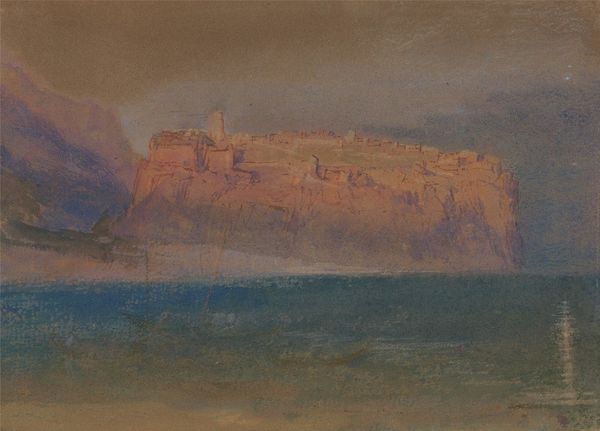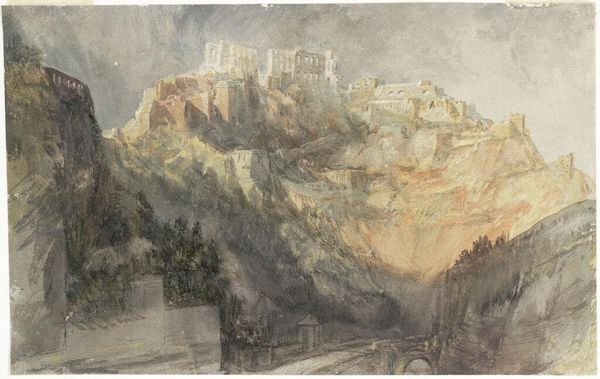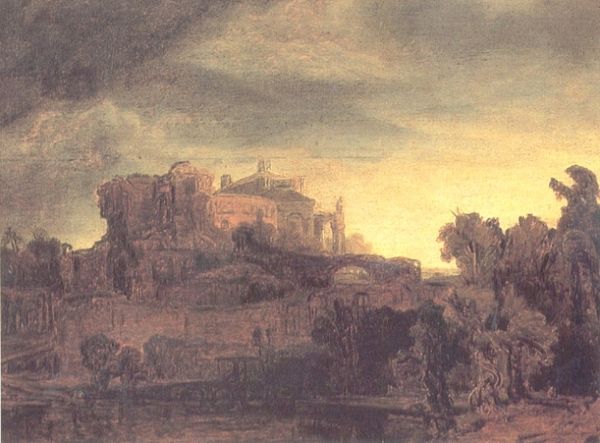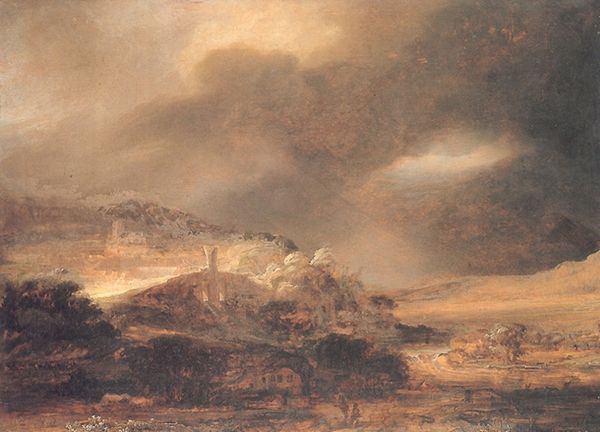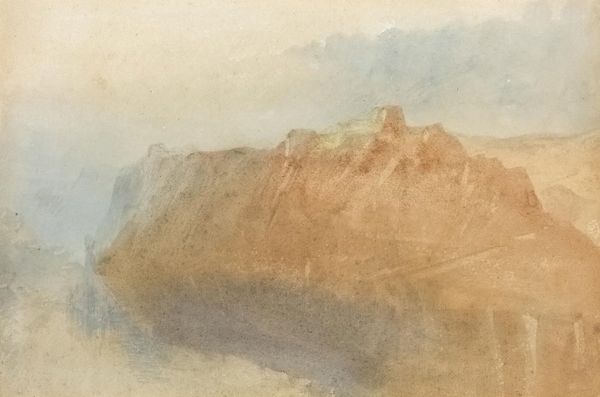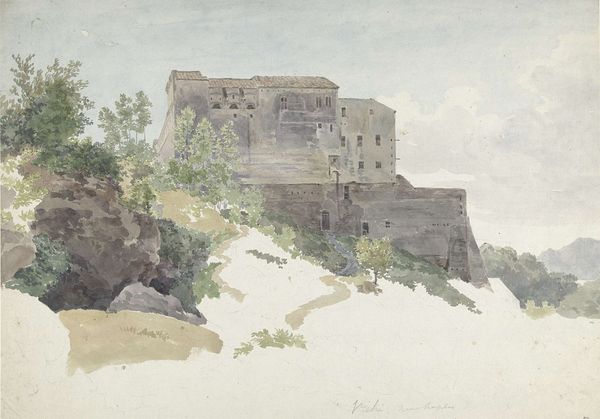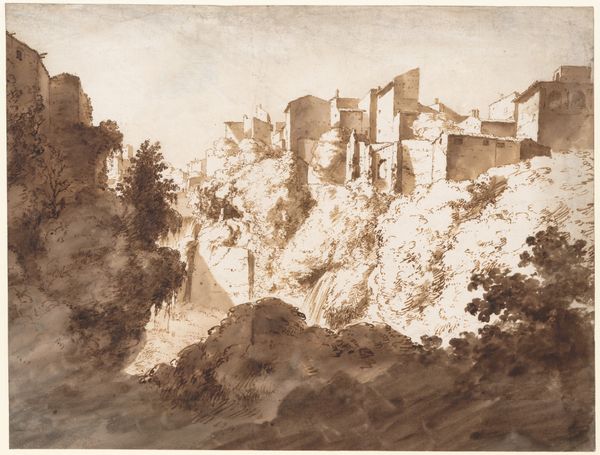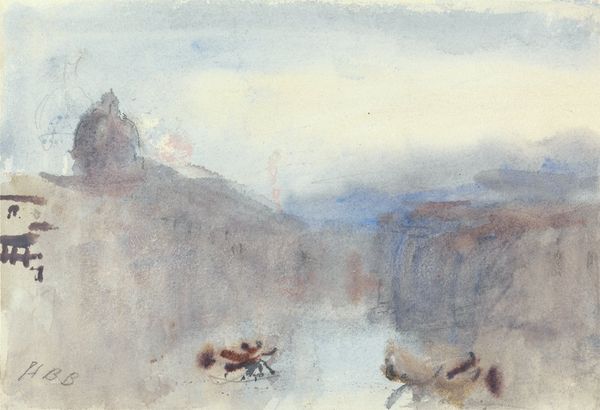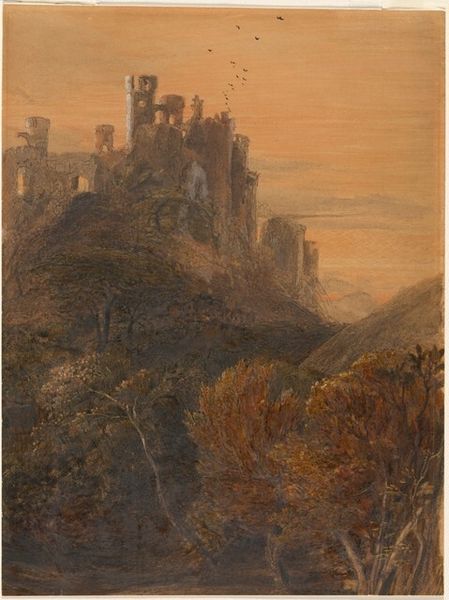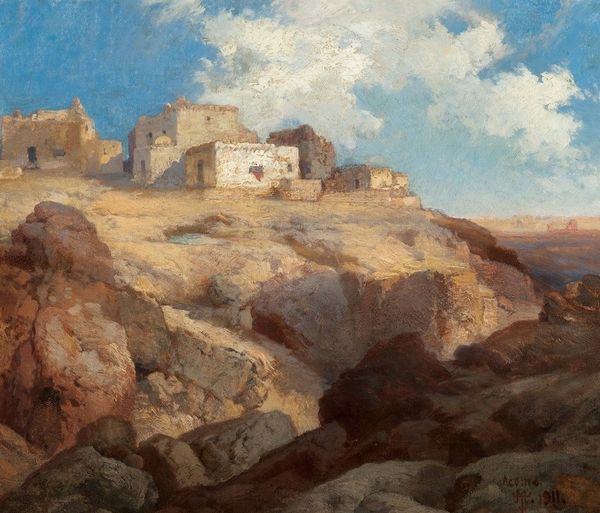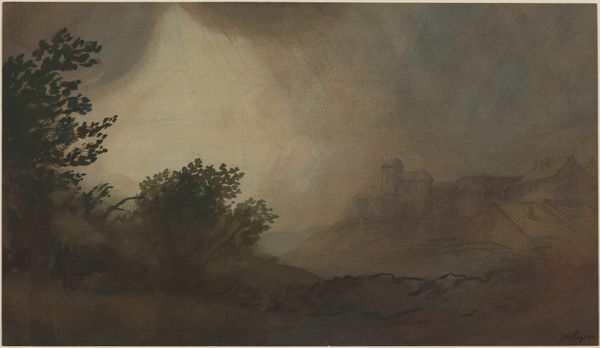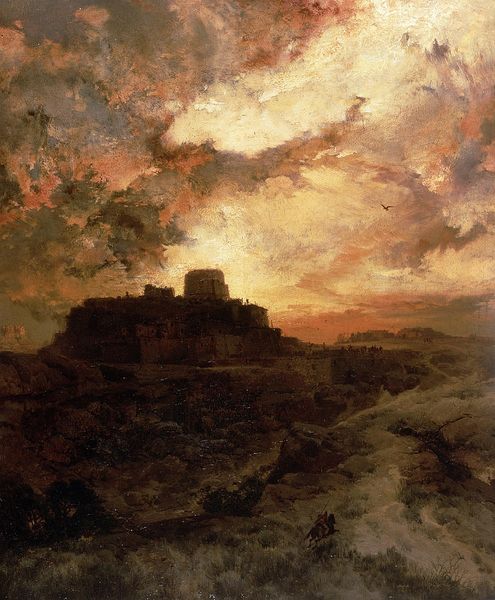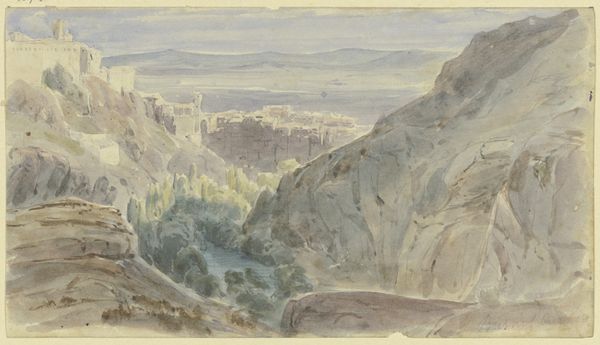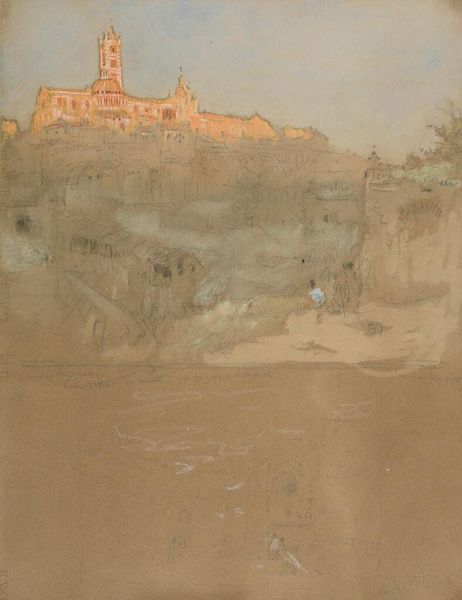
plein-air, dry-media, watercolor
#
plein-air
#
landscape
#
dry-media
#
oil painting
#
watercolor
#
romanticism
#
cityscape
#
watercolor
Copyright: Public Domain: Artvee
J.M.W. Turner made this watercolor of Luxembourg using pigments derived from minerals, plants, and other organic matter. The application of watercolor allows for the delicate depiction of light and atmosphere. Turner’s loose brushwork and thin washes of color create a hazy, dreamlike quality. In watercolor painting, the support—typically paper—plays a crucial role. The absorbency of the paper allows the pigments to sink in, creating a soft, luminous effect, and Turner likely used a textured paper to enhance the broken, uneven appearance of the surface. As a medium, watercolor was tied to notions of amateurism and the picturesque. Unlike oil paint, which was associated with high art and academic training, watercolor was often used for sketching and travel. It was a favorite of the burgeoning middle class, who had the leisure time for artistic pursuits. By embracing watercolor, Turner challenged the hierarchy of artistic media, elevating it to new levels of expression. He demonstrated that profound artistic statements could be made with even the humblest of materials.
Comments
No comments
Be the first to comment and join the conversation on the ultimate creative platform.
